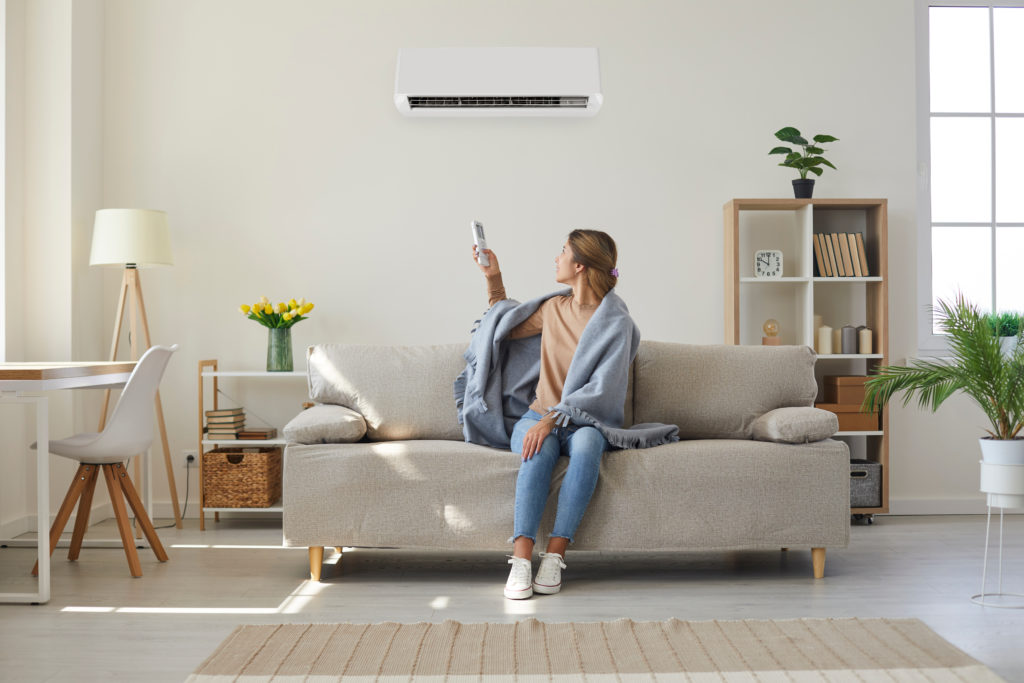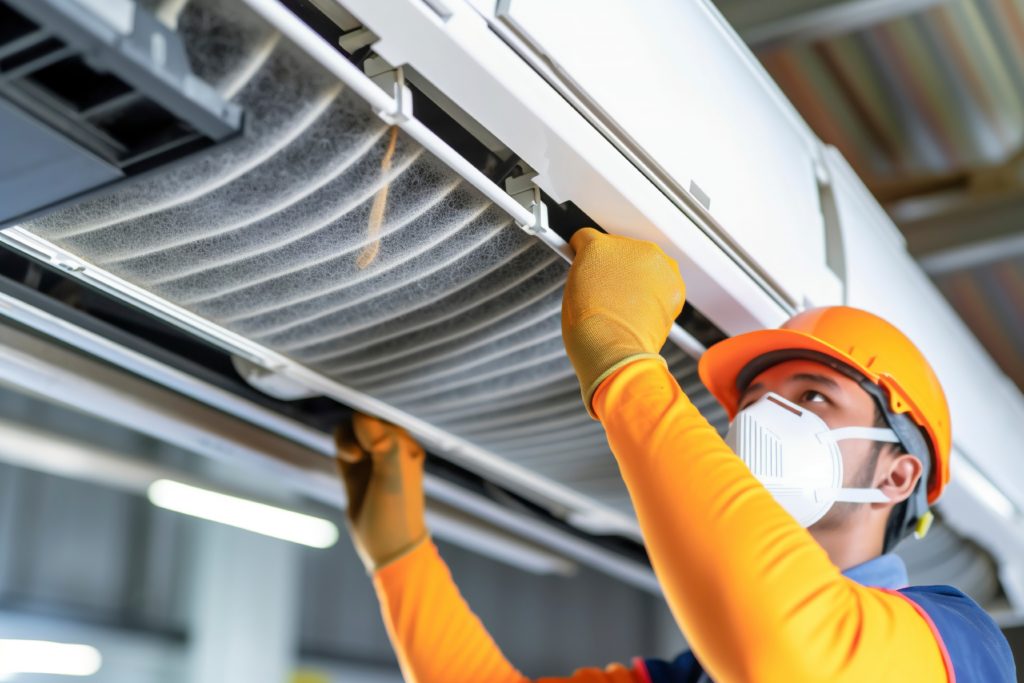When it comes to creating a comfortable living space, homeowners typically prioritize factors such as furniture design, room layout, and decorative elements. Yet, an often overlooked but essential element is indoor air quality.
While invisible to the naked eye, the air you breathe inside your home is crucial to your health, well-being, and overall comfort. One of the primary tools in ensuring good indoor air quality is the heating, ventilation, and air conditioning (HVAC) system.
But how exactly does an HVAC system contribute to improving the home environment? Here are the ways:
Temperature Consistency
While not directly related to air purity, consistent indoor temperatures affect overall comfort. Extremes in temperature, either too cold or too hot, can stress the body and aggravate certain health conditions. HVAC systems ensure that indoor temperatures remain consistent, irrespective of the weather outside.
The significance of having an efficient and appropriately sized HVAC system cannot be overstated. The size of HVAC system installed in a home can influence its efficacy in promoting better air quality. One that’s too small might struggle to filter the air adequately or maintain consistent temperatures. At the same time, an oversized one can cycle on and off too frequently, leading to energy inefficiency and inconsistent humidity levels. Therefore, selecting the correct size is vital.
Filtration Of Airborne Particles
Every breath taken indoors can carry a mix of airborne particles, collectively termed particulate matter (PM). These particles, varying from coarse pollen grains to ultrafine smoke particles, come from natural sources and human activities.
Think of dust from roads, smoke from cooking, or even aerosol sprays. While they might seem harmless, smaller particles, especially those sized PM2.5 or tinier, can delve deep into the lungs upon inhalation. It isn’t just an annoyance; these particles can aggravate respiratory ailments like asthma or bronchitis and, over time, even heighten cardiovascular risks. The young, elderly, and those with existing health conditions are most at risk.
Thankfully, advancements in HVAC technology offer a defense against these invisible threats. Many modern systems boast filters, such as High Efficiency Particulate Air (HEPA) filters, adept at trapping these particles. In perspective, a HEPA filter can catch 99.97% of particles as small as 0.3 microns, encompassing most allergens and several types of bacteria. By effectively removing these particulates, HVAC systems are silent guardians of indoor air quality and health.
Control Of Humidity Levels
High indoor humidity can be more than just discomfort; it’s a breeding ground for unwanted guests like mold and mildew. These organisms flourish in damp environments, leading to potential respiratory issues, particularly for those with pre-existing conditions. Beyond these health concerns, a moisture-laden atmosphere can also warp wood, peel paint, and damage electronic devices.
Dealing with indoor humidity is where the HVAC system truly shines. As the air cools, moisture gets drawn to the system’s evaporator coil. It causes the moisture to condense and be whisked away, helping maintain a comfortable humidity level in the room.
Modern HVAC units aren’t content with just that—they often come with dedicated dehumidifiers to tackle excess moisture head-on. And when the air feels too dry? These systems can add back a splash of moisture with integrated humidifiers, ensuring the air inside stays just right for our comfort and well-being.
Also Read: Top Tips On How To Improve Air Quality In The House.
Combating Indoor Pollutants And Ensuring Ventilation
Even in the safety of your home, unseen pollutants might be lurking. Alongside common allergens like dust and pollen, volatile organic compounds (VOCs) pose a subtle threat. Emitted by everyday items such as cleaning products, paints, and certain furnishings, VOCs can degrade the air you breathe. But, modern HVAC systems are designed to address this. Armed with activated carbon filters, they work tirelessly to lower VOC concentrations, promoting a cleaner breathing environment.
However, merely filtering out pollutants isn’t the whole solution. Stale air can accumulate these contaminants over time. This is where the ventilation prowess of your HVAC system proves invaluable. Drawing in and circulating fresh outdoor air dilutes and refreshes the indoor atmosphere. It’s particularly vital for contemporary homes built to be airtight for energy efficiency.
This is why it’s important to contact heating and aircon cleaning service
for they know what’s the best thing that needs to be done in any type of HVAC issues.
With the combined force of filtration and ventilation, your HVAC system ensures that your living space remains a healthy and comfortable haven.
Mitigation Of Harmful Microorganisms With UV Treatments
Not all HVAC systems come standard with ultraviolet (UV) light treatments. However, UV light integration is gaining traction in the industry due to its impressive capability to neutralize bacteria, viruses, and other harmful pathogens. For systems that don’t initially have this feature, UV light treatments can often be added as an upgrade or supplemental feature.
Homeowners interested in maximizing the health benefits of their HVAC should inquire about UV options during installation or servicing. When incorporated into HVAC systems, UV lights can sterilize the air, significantly reducing the risk of disease transmission indoors.
Also Read: How To Keep Excellent Air Quality In Your Home.
Odor Neutralization
Unpleasant odors can make indoor environments unbearable. Persistent odors can be a nuisance from cooking, pets, or any other source. HVAC systems help neutralize these odors. When combined with good ventilation and effective filtering, the system ensures that the atmosphere inside feels clean and smells fresh.
Conclusion
HVAC systems are foundational in ensuring our homes remain havens of health, comfort, and safety. They filter pollutants, regulate humidity, ventilate spaces, neutralize odors, and even combat harmful microorganisms. Beyond controlling temperature, they preserve and enhance the air you breathe. As such, homeowners must recognize the multifaceted benefits of HVAC systems and ensure they function at their best, prioritizing their care for an optimum indoor environment. Schedule regular HVAC check-ups with a trusted professional to maintain a healthy home environment.


